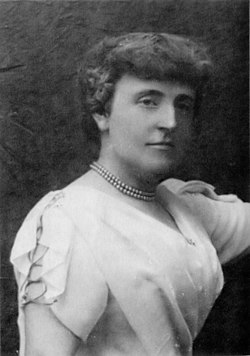Frances Hodgson Burnett Quote
So long as Colin shut himself up in his room and thought only of his fears and weakness and his detestation of people who looked at him and reflected hourly on humps and early death, he was a hysterical half-crazy little hypochondriac who knew nothing of the sunshine and the spring and also did not know that he could get well and could stand upon his feet if he tried to do it. When new beautiful thoughts began to push out the old hideous ones, life began to come back to him, his blood ran healthily through his veins and strength poured into him like a flood. His scientific experiment was quite practical and simple and there was nothing weird about it at all. Much more surprising things can happen to any one who, when a disagreeable or discouraged thought comes into his mind, just has the sense to remember in time and push it out by putting in an agreeable determinedly courageous one. Two things cannot be in one place. Where, you tend a rose, my lad, A thistle cannot grow.
So long as Colin shut himself up in his room and thought only of his fears and weakness and his detestation of people who looked at him and reflected hourly on humps and early death, he was a hysterical half-crazy little hypochondriac who knew nothing of the sunshine and the spring and also did not know that he could get well and could stand upon his feet if he tried to do it. When new beautiful thoughts began to push out the old hideous ones, life began to come back to him, his blood ran healthily through his veins and strength poured into him like a flood. His scientific experiment was quite practical and simple and there was nothing weird about it at all. Much more surprising things can happen to any one who, when a disagreeable or discouraged thought comes into his mind, just has the sense to remember in time and push it out by putting in an agreeable determinedly courageous one. Two things cannot be in one place. Where, you tend a rose, my lad, A thistle cannot grow.
Related Quotes
Let my silence grow with noise as pregnant mothers grow with life. Let my silence permeate these walls as sunlight permeates a home. Let the silence rise from unwatered graves and craters left by bomb...
About Frances Hodgson Burnett
Frances Eliza Hodgson was born in Cheetham, Manchester, England. After her father died in 1853, when Frances was 4 years old, the family fell on straitened circumstances and in 1865 emigrated to the United States, settling in New Market, Tennessee. Frances began her writing career there at age 19 to help earn money for the family, publishing stories in magazines. In 1870, her mother died. In Knoxville, Tennessee, in 1873 she married Swan Burnett, who became a medical doctor. Their first son Lionel was born a year later. The Burnetts lived for two years in Paris, where their second son Vivian was born, before returning to the United States to live in Washington, D.C. Burnett then began to write novels, the first of which (That Lass o' Lowrie's), was published to good reviews. Little Lord Fauntleroy was published in 1886 and made her a popular writer of children's fiction, although her romantic adult novels written in the 1890s were also popular. She wrote and helped to produce stage versions of Little Lord Fauntleroy and A Little Princess.
Beginning in the 1880s, Burnett began to travel to England frequently and in the 1890s bought a home there, where she wrote The Secret Garden. Her elder son, Lionel, died of tuberculosis in 1890, which caused a relapse of the depression she had struggled with for much of her life. She divorced Swan Burnett in 1898, married Stephen Townsend in 1900, and divorced him in 1902. A few years later she settled in Nassau County, New York, where she died in 1924 and is buried in Roslyn Cemetery.
In 1936, a memorial sculpture by Bessie Potter Vonnoh was erected in her honor in Central Park's Conservatory Garden. The statue depicts her two famous Secret Garden characters, Mary and Dickon.
